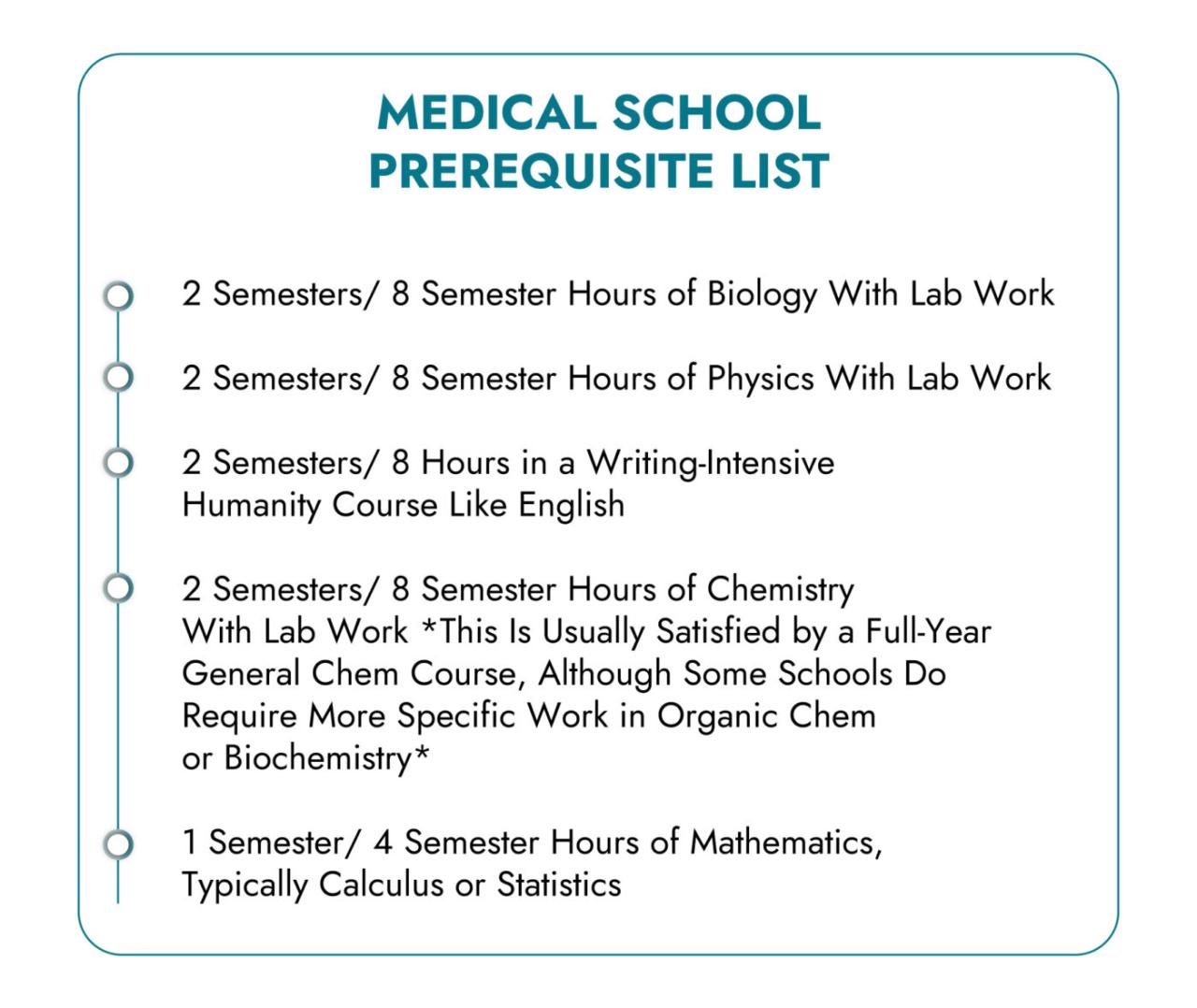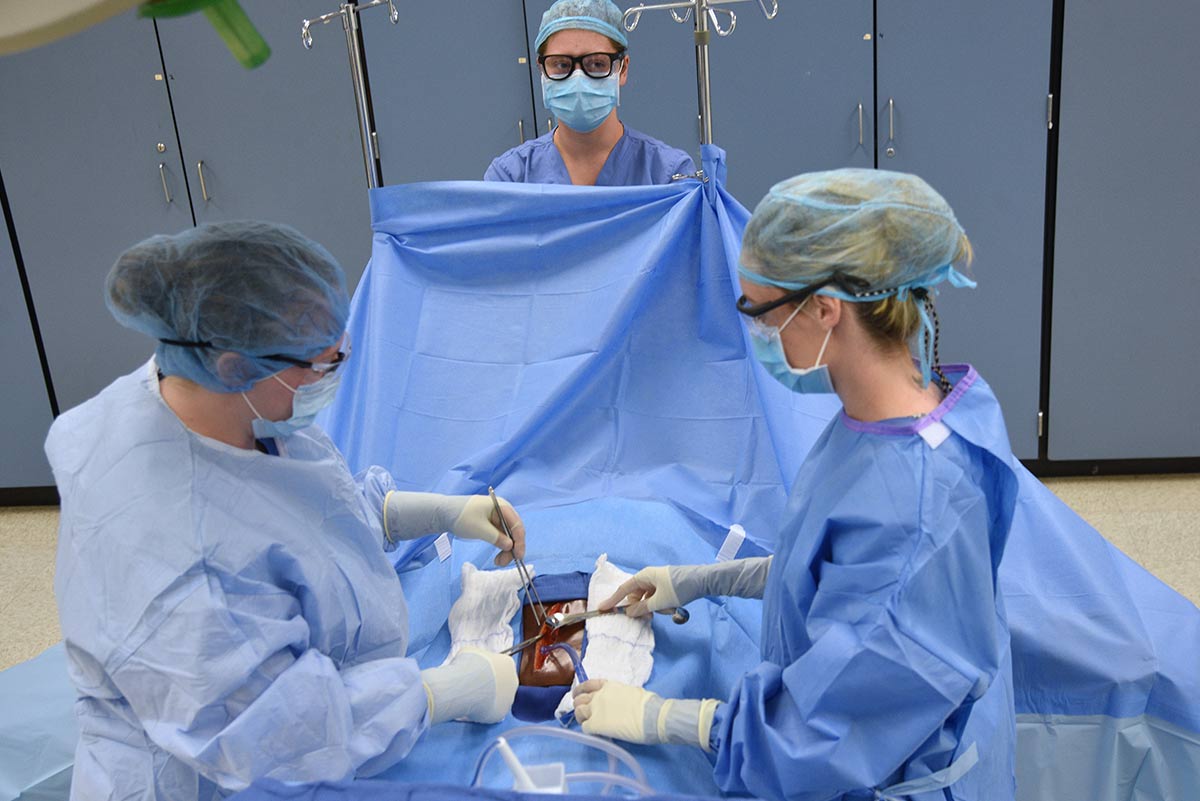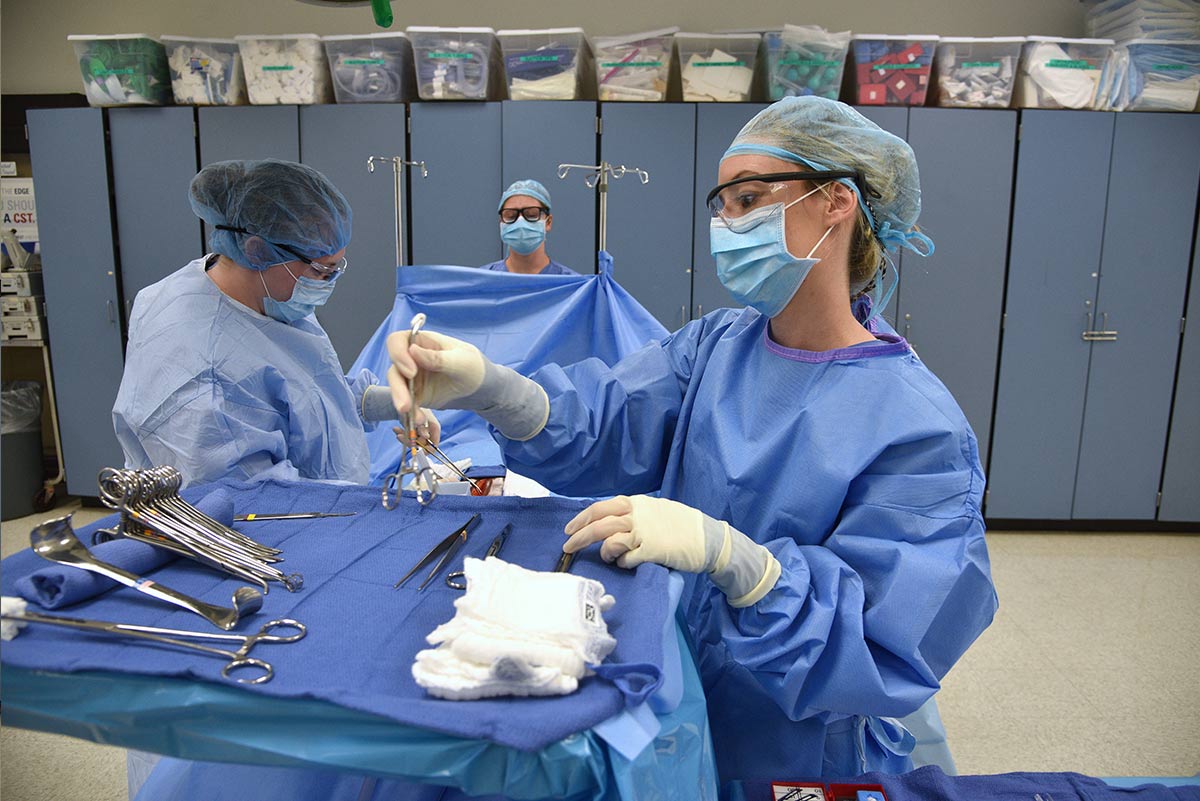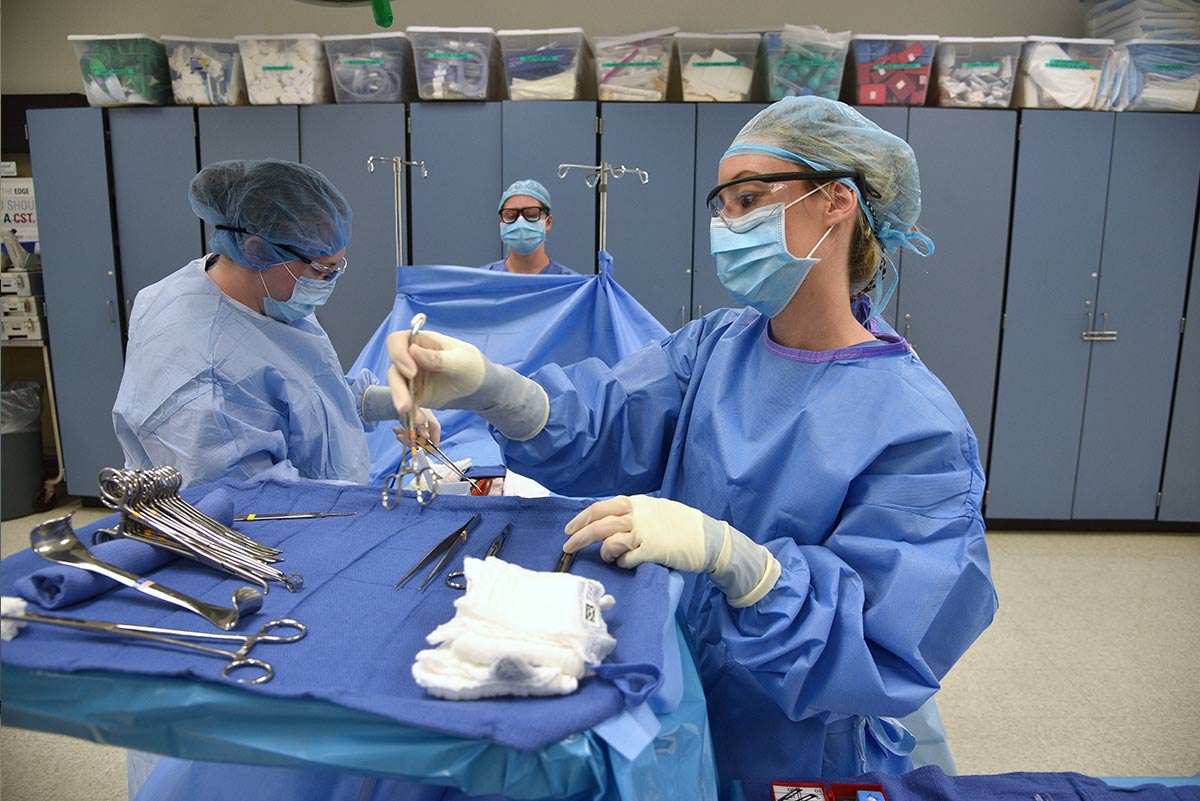Surgical tech program admission requirements and prerequisites can seem daunting, but understanding the process is key to getting into your dream program. This guide breaks down the essentials, from academic qualifications and practical experience to the application and interview stages. We’ll explore what’s expected of applicants and how you can best prepare yourself for a successful application.
So, you’re looking at surgical tech program admission requirements and prerequisites? It’s a competitive field, so strong grades are key. But hey, if the OR isn’t your thing, maybe consider a career shift. Check out some best online IT courses for career advancement to explore other options. Ultimately, surgical tech program admission requirements and prerequisites will depend on the specific school, so research carefully!
This journey involves more than just good grades; it’s about showcasing your passion for the medical field and your dedication to becoming a skilled surgical technician. We’ll cover everything from the specific courses you’ll need to the importance of relevant work experience and crafting a compelling application. Let’s dive in and equip you with the knowledge you need to succeed!
Educational Requirements for Surgical Tech Programs: Surgical Tech Program Admission Requirements And Prerequisites
Gaining admission to a surgical technology program typically requires meeting specific educational prerequisites. These requirements ensure that prospective students possess the foundational knowledge and skills necessary to succeed in the rigorous program. Let’s delve into the details.
High School Diploma or Equivalent
Most surgical technology programs require a high school diploma or its equivalent, such as a GED. While specific requirements vary by institution, a strong academic record demonstrating consistent effort and achievement is usually expected. Some programs may specify minimum GPA requirements even at the high school level. GED acceptance policies differ; some programs readily accept GED holders, while others may have more stringent criteria or give preference to high school diploma recipients.
It’s crucial to check the specific admission requirements of each program you’re interested in.
Science Background
A solid foundation in science is paramount for success in surgical technology. Courses in biology and chemistry are particularly important, as they provide the fundamental knowledge of anatomy, physiology, microbiology, and sterilization techniques crucial for the profession. A strong grasp of these subjects will allow you to better understand the complex procedures and sterile environments involved in surgical settings.
Prospective students should aim for high grades in these courses to demonstrate their preparedness for the program’s demanding curriculum.
Prerequisite Courses
Many surgical technology programs mandate specific prerequisite courses. These courses often include Anatomy and Physiology, Microbiology, and sometimes introductory-level Chemistry or Biology. These courses provide the essential scientific foundation for the program. Successful completion of these courses, often with a minimum grade, is usually a prerequisite for admission. Specific course names and descriptions can vary slightly between institutions, so always refer to the program’s official requirements.
So, you’re thinking about becoming a surgical tech? Admission to these programs usually involves a high school diploma or equivalent, plus prerequisites like specific science courses. Interestingly, the manufacturing of many of the medical devices you’ll use is often centered in China, as you can read about in this article: China is the manufacturing superpower | Hacker News.
Knowing this global context can help you appreciate the supply chain behind your future career. Beyond the prerequisites, some programs also require things like a minimum GPA or even a healthcare-related background.
Prerequisite Course Comparison
The following table compares the prerequisite course requirements of three hypothetical surgical technology programs. Note that these are examples and actual requirements will vary significantly.
| Program Name | Course Name | Description | Credit Hours |
|---|---|---|---|
| City College Surgical Tech Program | Anatomy & Physiology I | Introduction to human anatomy and physiology. | 4 |
| City College Surgical Tech Program | Microbiology | Study of microorganisms and their impact on health. | 3 |
| University Hospital Surgical Tech Program | Human Anatomy | Detailed study of the human body’s structure. | 3 |
| University Hospital Surgical Tech Program | General Biology | Broad overview of biological principles. | 4 |
| County Community College Surgical Tech Program | Anatomy & Physiology I & II | Comprehensive study of human anatomy and physiology. | 8 |
| County Community College Surgical Tech Program | Medical Microbiology | Microbiology focused on medically relevant organisms. | 4 |
GPA and Standardized Test Scores
Your GPA and standardized test scores play a significant role in the admissions process for surgical technology programs. These metrics provide a quantifiable measure of your academic performance and preparedness for the program’s rigorous demands.
GPA Requirements
Most surgical technology programs establish minimum GPA requirements, typically ranging from 2.5 to 3.0 on a 4.0 scale. However, a higher GPA significantly increases your chances of admission, especially if competing with other strong applicants. The way GPA is weighted can vary; some programs may give more weight to science courses, reflecting the importance of a strong science background.
It’s essential to understand how your GPA is calculated and what constitutes a competitive score for the programs you are applying to.
Standardized Test Scores
Some programs may require or consider standardized tests like the SAT or ACT. While the emphasis on standardized tests varies, a strong score can bolster your application. Specific score requirements are usually listed in the program’s admission criteria. If standardized tests are required, ensure you prepare adequately to achieve competitive scores.
GPA and Standardized Test Score Comparison
Let’s consider two hypothetical programs. Program A might require a minimum 2.7 GPA and no standardized test scores, while Program B might require a minimum 2.5 GPA and a minimum ACT composite score of 20. This highlights the variability in admission policies.
Strategies for Improving GPA and Test Scores
- Seek academic advising for course selection and study strategies.
- Utilize tutoring services for challenging subjects.
- Engage actively in class and participate in study groups.
- Develop effective time management and study habits.
- Practice consistently for standardized tests using official study materials.
Practical Experience and Skills
Beyond academic achievements, practical experience and demonstrable skills significantly enhance your surgical technology program application. These experiences show your commitment to the field and provide valuable insights into the profession.
Beneficial Experiences
Relevant experiences such as volunteering in a hospital or healthcare setting, shadowing a surgical technician, or working as a medical assistant showcase your interest and aptitude. These experiences provide firsthand exposure to the healthcare environment and allow you to observe surgical procedures and interact with healthcare professionals. The more relevant your experience, the stronger your application will be.
Demonstrating Commitment, Surgical tech program admission requirements and prerequisites
A compelling personal statement effectively communicates your dedication to the field of surgical technology. Highlighting specific experiences and skills acquired through volunteering, shadowing, or relevant employment demonstrates your commitment and preparedness for the program’s demands. Showcasing specific instances where you learned and grew from these experiences will leave a lasting impression.
So you’re thinking about becoming a surgical tech? Awesome! Admission to most programs requires a high school diploma or equivalent, plus specific science prerequisites. But, you might also find that some programs value applicants with foundational skills in medical record-keeping and data management, which is where taking some IT courses could really give you an edge.
This can help you with things like electronic health records and overall tech proficiency. Ultimately, though, always check the specific admission requirements and prerequisites for the surgical tech program you’re interested in.
Examples of Compelling Personal Statements

A strong personal statement might describe a specific experience shadowing a surgical technician, detailing the procedures observed and the skills learned. Another might detail volunteering in a hospital, highlighting the challenges faced and the lessons learned about teamwork and patient care. The key is to be specific and demonstrate genuine passion for the field.
Resources for Gaining Practical Experience

- Hospital volunteer programs
- Medical assistant positions
- Shadowing opportunities with surgical technicians
- Networking with healthcare professionals
- Online job boards and healthcare recruitment websites
Application Process and Deadlines
The application process for surgical technology programs typically involves several steps. Careful planning and adherence to deadlines are crucial for a successful application.
Steps in the Application Process
Generally, the process involves completing an application form, submitting official transcripts from previous institutions, providing letters of recommendation from individuals who can attest to your skills and qualifications, and possibly submitting standardized test scores. Some programs may also require a personal statement or essay, and an interview.
Sample Application Timeline

A typical timeline might involve researching programs in the spring, submitting applications in the summer, completing interviews in the fall, and receiving acceptance notifications by early winter. However, specific deadlines vary widely, so it’s crucial to check each program’s individual deadlines.
Importance of Meeting Deadlines
Meeting application deadlines is paramount. Late applications are often not considered, and missing deadlines can significantly impact your chances of admission. Plan ahead, allowing ample time for each step of the application process to avoid last-minute rushes and potential errors.
Application Process Flowchart
A flowchart would visually represent the steps: Inquiry → Application Completion → Transcript Submission → Recommendation Letters → Interview (if required) → Acceptance/Rejection.
Interview Process and Considerations
Many surgical technology programs incorporate an interview as part of the admissions process. The interview provides an opportunity for the admissions committee to assess your suitability for the program beyond your academic record.
Typical Interview Process
Interviews can be conducted in person, via video conference, or even by phone. The format may vary, but generally, expect a conversation exploring your background, motivations, and relevant skills. Be prepared to discuss your experiences, academic record, and career aspirations.
Common Interview Questions
Expect questions about your interest in surgical technology, your experience in healthcare settings, your teamwork skills, your ability to handle stress, and your understanding of the profession’s demands. Be ready to provide specific examples illustrating your skills and experiences.
Strong Answers to Common Questions
Strong answers will be specific, concise, and demonstrate self-awareness. For example, instead of saying “I’m a hard worker,” describe a specific situation where you demonstrated strong work ethic and the positive outcome. Practice your responses beforehand.
Preparing for the Interview
Thorough preparation is key. Research the program, the interviewers, and the field of surgical technology. Practice answering common interview questions, and consider practicing with a friend or mentor to refine your responses. Your preparation will build confidence and increase your chances of success.
Program Specific Requirements
Admission requirements vary significantly among surgical technology programs. Understanding these variations is crucial for a successful application process.
Variability in Admission Requirements
Different programs may emphasize different aspects of the application, such as GPA, standardized test scores, or practical experience. Some programs might have unique requirements, such as specific certifications or additional coursework, while others might place more weight on the interview process.
Examples of Unique Requirements
One program might require a specific certification in CPR or BLS, while another might mandate completion of a specific anatomy and physiology course at a particular institution. Some programs might require a portfolio showcasing relevant skills or projects.
Community College vs. University Programs
Community college programs often have less stringent admission requirements than university programs, but they may offer a more focused and hands-on curriculum. University programs may require a higher GPA and more extensive prerequisite coursework but might offer broader career opportunities.
Program Specific Requirement Comparison
The following table illustrates hypothetical examples of unique program requirements. Remember, these are illustrative examples, and actual requirements vary greatly.
| Program Name | Unique Requirement | Description | Source |
|---|---|---|---|
| Metropolitan Community College | BLS Certification | Basic Life Support certification. | Program Website |
| State University Medical Center | Advanced Anatomy Course | Completion of a specific advanced anatomy course. | Course Catalog |
| Regional Hospital Surgical Tech Program | Observation Hours | Minimum 40 hours observing surgical procedures. | Program Handbook |
Final Review
Securing a spot in a surgical technology program is a significant achievement, requiring dedication and preparation. By understanding the admission requirements and prerequisites, and strategically planning your application, you significantly increase your chances of success. Remember to highlight your relevant experience, showcase your passion, and thoroughly prepare for the interview process. Good luck on your path to becoming a surgical technician!
Questions Often Asked
What if I don’t have all the prerequisite courses completed?
Many programs allow you to take some prerequisites concurrently with the program, but check with each school’s specific policies. Some may require all prerequisites to be completed before enrollment.
How important are letters of recommendation?
Very important! Choose recommenders who can speak to your skills and character, ideally those who know you well from academic or professional settings. Give them plenty of notice and provide them with information to help them write a strong letter.
What kind of questions are asked in a surgical tech program interview?
Expect questions about your interest in the field, your relevant experience, your teamwork skills, and your ability to handle stress. Prepare examples from your experiences to showcase your abilities.
Can I apply to multiple programs at once?
Yes, absolutely! Applying to multiple programs increases your chances of acceptance. Make sure you understand each program’s deadlines and requirements.
